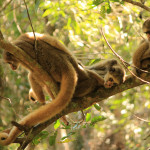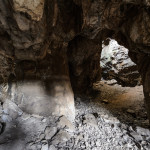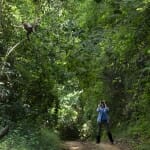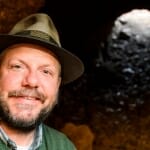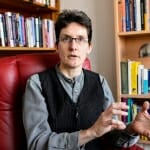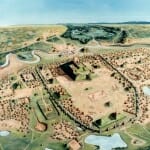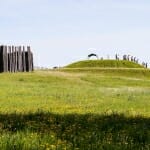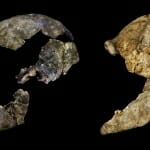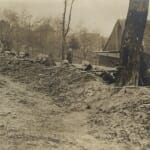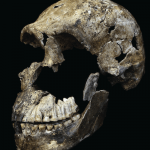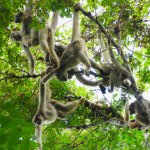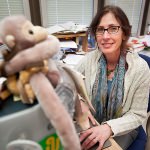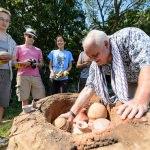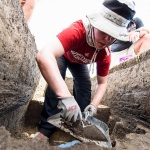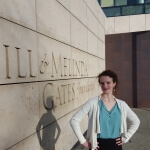Tag Anthropology
Threat of abrupt mortality events keeps endangered monkey population at risk, despite decades of growth
Researchers hope their work eventually could inform conservation policies that might improve habitat quality management or create habitat corridors between isolated populations of the muriquis. Read More
UW–Madison case study investigates gap in quality of life for Hmong nursing home residents
Mai See Thao believes it’s essential to factor in refugees’ past experiences as they age in care facilities, to avoid reproducing feelings of isolation, abandonment and uncertainty. Read More
Archaeologists uncover evidence of intentional burial, cave engravings by early human ancestor
Until now, scholars believed that the mental capacity behind complex cultural behaviors like burial and mark-making required a larger brain, like those of Neanderthals and Homo sapiens. Read More
Grad student receives fellowship for her research on bomba dance
Graduate student Sarah Bruno didn't just read books and study documents to learn about the bomba dance and its roots. She danced. Read More
Anthropology professor Karen Strier recognized as prominent primate conservationist in Brazil
For 38 years, Strier has maintained a long-term study site on a protected reserve in southeastern Brazil near the city of Caratinga, in the state of Minas Gerais, where she studies a species of monkey known as the muriqui, often called the hippie monkey. Read More
Cellphones causing horns on millennials? Not so fast
Anthropology Professor John Hawks says the research just doesn't back up the claim behind the viral story: that a higher proportion of young men are growing horns, apparently because of cell phone use. Read More
Pandey, Wendland land American Council of Learned Societies Fellowships
Both plan to use their fellowships to work on writing books. Nandini Pandey's will be called "Diversity and Difference in Imperial Rome," and Claire Wendland's is "Partial Stories: Maternal Death in a Changing African World." Read More
Ancient poop helps show climate change contributed to fall of Cahokia
A study provides a direct link between changes in Cahokia’s population size as measured through a unique fecal record and environmental data showing evidence of drought and flood. Read More
‘Origins’ scientists to take your questions Thursday during Reddit AMA
Ever wondered what it’s like to unearth a long-buried human ancestor? Or to peer into the night sky to discover the mysteries of galaxy evolution? Find out Thursday. Read More
In ‘Origins,’ UW–Madison and South African scientists tackle mysteries of our shared beginnings
The quest to understand our beginnings — of our universe, of life on Earth, of our species — inspires people all over the world. At UW–Madison, researchers have forged partnerships with colleagues in South Africa and are uncovering answers and opening new scientific frontiers. Read More
Violence a matter of scale, not quantity, researchers show
New research shows that the size of a society’s population is what drives the size of its “war group,” or number of people of fighting age who defend it. Read More
South African cave yields yet more fossils of a newfound relative
The discovery of the new Homo naledi fossils, representing the remains of at least three juvenile and adult specimens, includes a “wonderfully complete skull,” says UW–Madison anthropologist John Hawks. Read More
Yellow fever killing thousands of monkeys in Brazil
In a vulnerable forest in southeastern Brazil, where the air was once thick with the guttural chatter of brown howler monkeys, there now exists silence. Yellow fever, a virus carried by mosquitoes and endemic to Africa and South America, has killed thousands of monkeys since late 2016. Read More
Karen Strier is elected president of International Primatological Society
For the first time in its 52-year history, the International Primatological Society has elected a University of Wisconsin–Madison scientist as its president: Karen Strier, Vilas Research Professor and Irven DeVore Professor of Anthropology. Read More
Old technology provides modern lessons to archaeology students
Students in anthropology Professor Mark Kenoyer's Ancient Technology and Invention course were working recently under a beating hot sun at the outdoor UW–Madison Experimental Archaeology Lab near Picnic Point. Read More
Explorations at Aztalan yield enthusiasm and excitement for visitors, students
Excavations are underway to better understand the daily lives of the ancient peoples who called Aztalan home a millennium ago. Read More
UW-Madison graduate named Gates Cambridge Scholar
Joanna Lawrence received her bachelor’s degree in anthropology from UW–Madison and completed her master’s degree in archaeology at Cambridge last year. Read More

